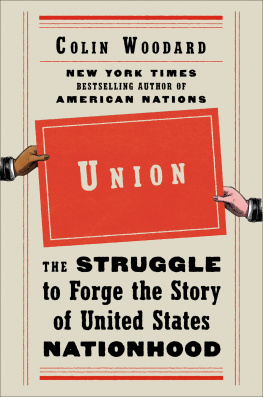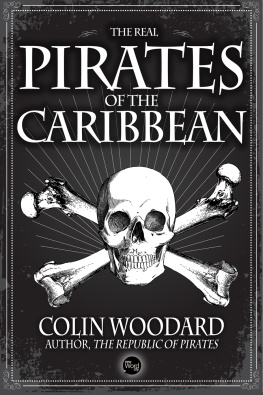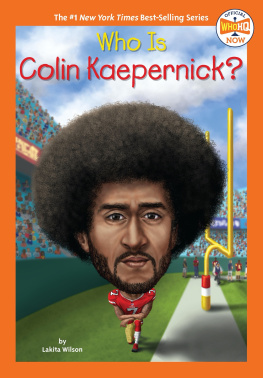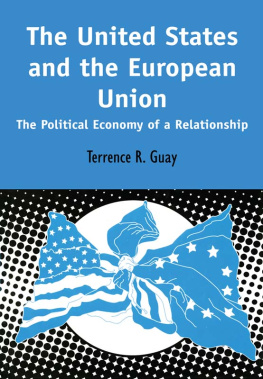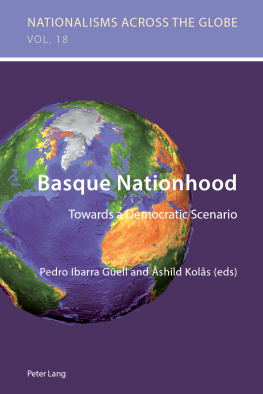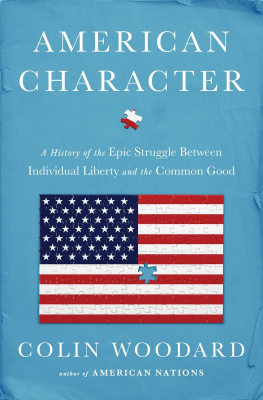Colin Woodard - Union: The Struggle to Forge the Story of United States Nationhood
Here you can read online Colin Woodard - Union: The Struggle to Forge the Story of United States Nationhood full text of the book (entire story) in english for free. Download pdf and epub, get meaning, cover and reviews about this ebook. year: 2020, publisher: Penguin Publishing Group, genre: History. Description of the work, (preface) as well as reviews are available. Best literature library LitArk.com created for fans of good reading and offers a wide selection of genres:
Romance novel
Science fiction
Adventure
Detective
Science
History
Home and family
Prose
Art
Politics
Computer
Non-fiction
Religion
Business
Children
Humor
Choose a favorite category and find really read worthwhile books. Enjoy immersion in the world of imagination, feel the emotions of the characters or learn something new for yourself, make an fascinating discovery.
- Book:Union: The Struggle to Forge the Story of United States Nationhood
- Author:
- Publisher:Penguin Publishing Group
- Genre:
- Year:2020
- Rating:3 / 5
- Favourites:Add to favourites
- Your mark:
- 60
- 1
- 2
- 3
- 4
- 5
Union: The Struggle to Forge the Story of United States Nationhood: summary, description and annotation
We offer to read an annotation, description, summary or preface (depends on what the author of the book "Union: The Struggle to Forge the Story of United States Nationhood" wrote himself). If you haven't found the necessary information about the book — write in the comments, we will try to find it.
Union: The Struggle to Forge the Story of United States Nationhood — read online for free the complete book (whole text) full work
Below is the text of the book, divided by pages. System saving the place of the last page read, allows you to conveniently read the book "Union: The Struggle to Forge the Story of United States Nationhood" online for free, without having to search again every time where you left off. Put a bookmark, and you can go to the page where you finished reading at any time.
Font size:
Interval:
Bookmark:
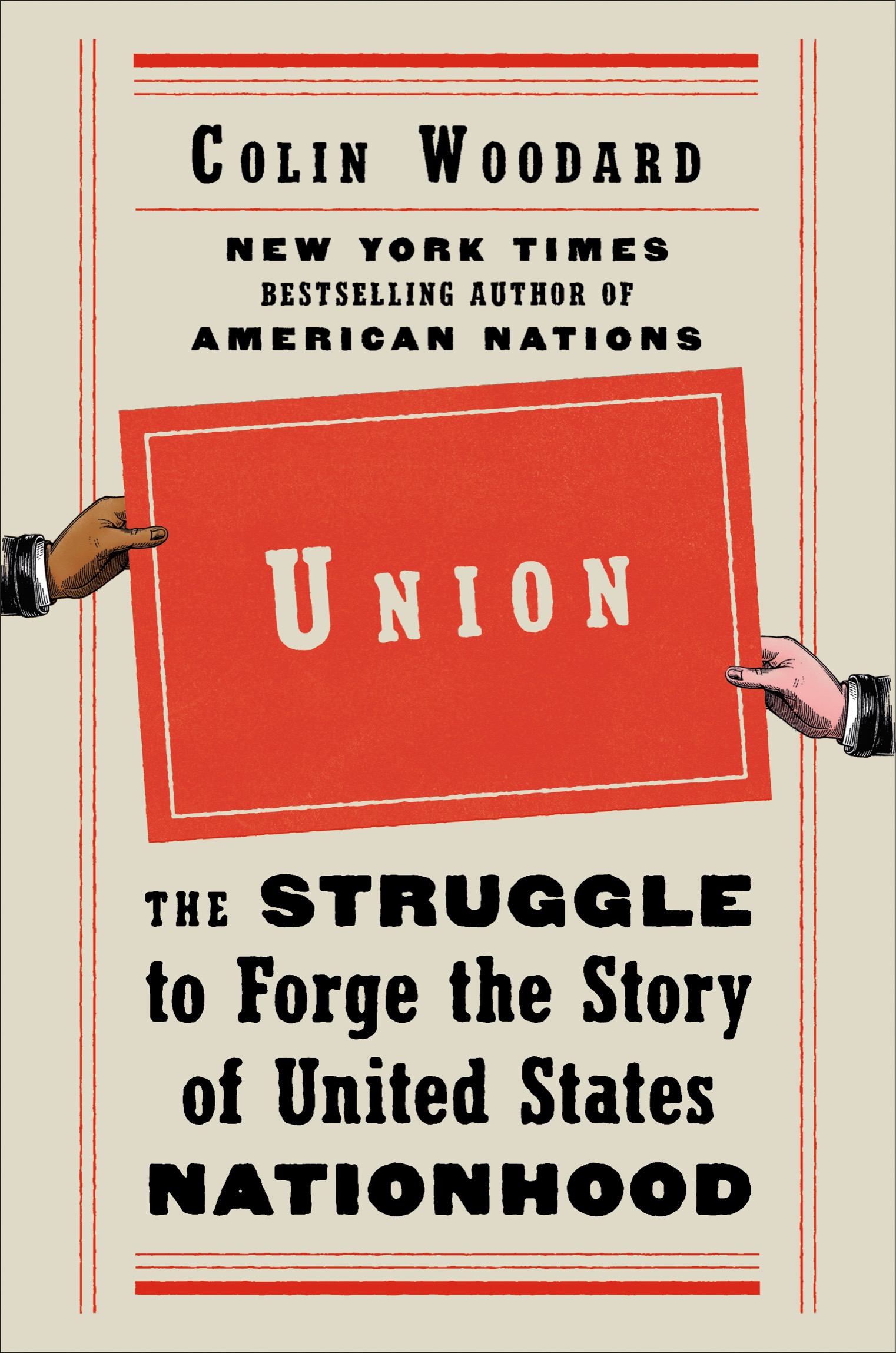
Oceans End
The Lobster Coast
The Republic of Pirates
American Nations
American Character
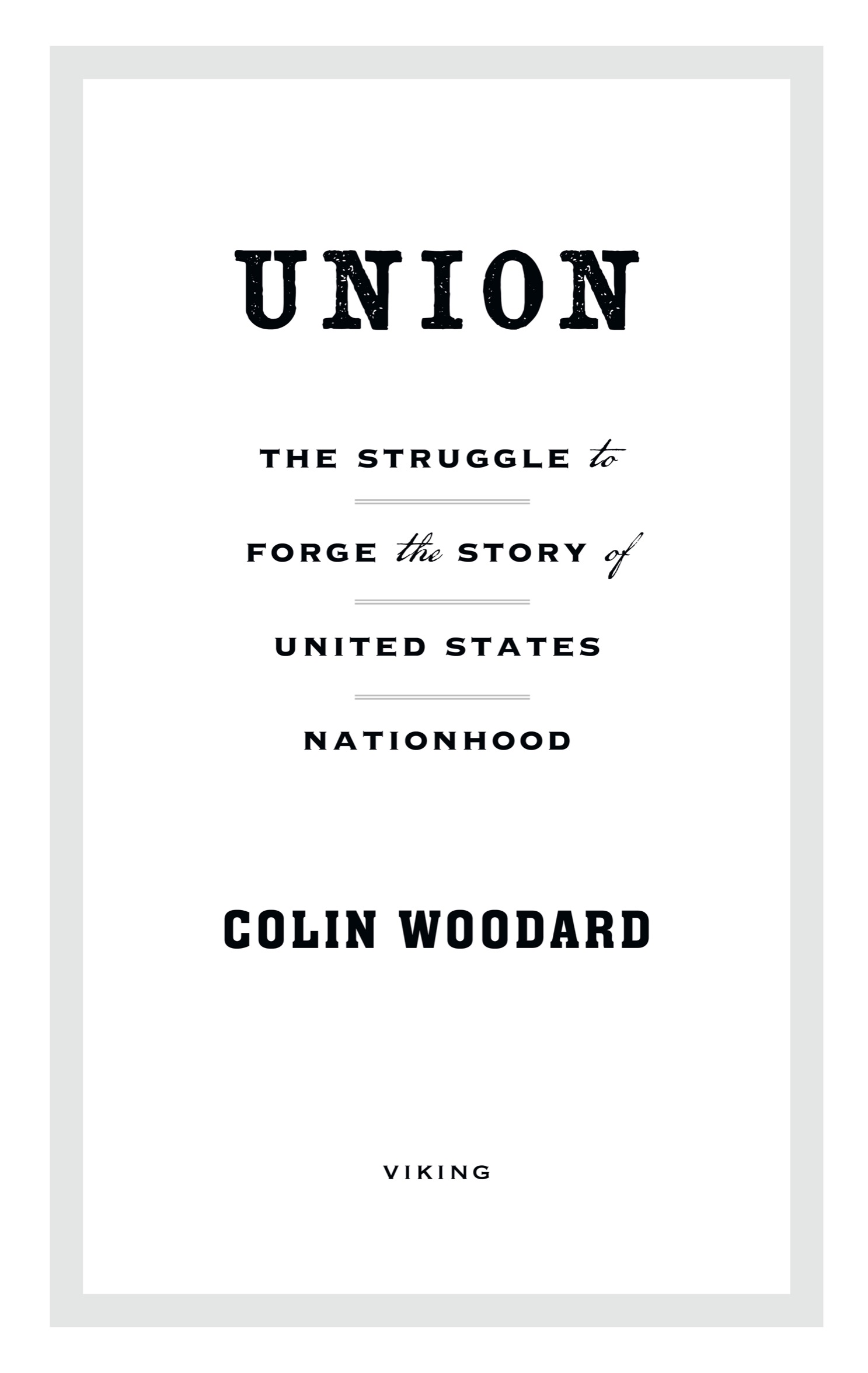
VIKING
An imprint of Penguin Random House LLC
penguinrandomhouse.com
Copyright 2020 by Colin Woodard
Penguin supports copyright. Copyright fuels creativity, encourages diverse voices, promotes free speech, and creates a vibrant culture. Thank you for buying an authorized edition of this book and for complying with copyright laws by not reproducing, scanning, or distributing any part of it in any form without permission. You are supporting writers and allowing Penguin to continue to publish books for every reader.
LIBRARY OF CONGRESS CATALOGING-IN-PUBLICATION DATA
Names: Woodard, Colin, 1968 author.
Title: Union : the struggle to forge the story of United States nationhood / Colin Woodard.
Description: New York : Viking, 2020. | Includes bibliographical references and index.
Identifiers: LCCN 2019057963 (print) | LCCN 2019057964 (ebook) | ISBN 9780525560159 (hardcover) | ISBN 9780525560166 (ebook)
Subjects: LCSH: NationalismUnited StatesHistory. | RegionalismUnited StatesHistory. | United StatesPolitics and governmentPhilosophy. | National characteristics, AmericanHistory.
Classification: LCC E169.1.W6885 2020 (print) | LCC E169.1 (ebook) | DDC 320.540973dc23
LC record available at https://lccn.loc.gov/2019057963
LC ebook record available at https://lccn.loc.gov/2019057964
Cover design: Colin Webber
Cover image taken from Graphic Ornaments, published by The Pepin Press
pid_prh_5.5.0_c0_r0
For my daughter, Sadie Adelaide Woodard,
who hopefully will inherit a liberal democracy and ample royalties from this book
I have long wondered how and by whom the story of United States nationhood was created. Nearly a decade ago I wrote a book, American Nations: A History of the Eleven Rival Regional Cultures of North America, that argued there was never one America but several, with distinctions dating back to the differences between the various North American colonial projects and the swaths of the continent each settled in the decades and centuries that followed. I knew that these regional culturesGreater New England, Greater Appalachia, the Tidewater, the Deep South, and so onhad their own ethnographic, religious, political, and philosophical characteristics and that most had rallied together in response to an external threat: Britains attempt to systemize, homogenize, and consolidate its empire. At its birth, nobody seemed quite sure what the United States was. A treaty organization? A federation of sovereign nations? A nation-state in waiting? I was also aware that these questions persisted as late as the 1830s, and that the lack of answers threatened the survival of this new entity, whatever it was.
In Union I set out to write a book that would reveal how the story of a shared nationhood was devised, disseminated, and ultimately upheld. What I discovered in the course of my research was an intellectual battle of the highest possible stakes that spanned a century and ultimately helped explain a great deal about the age in which we now live. I have told this story through the lives of five people who made themselves standard-bearers as well as lightning rods in this struggle for the hearts and minds of millions.
The battle was initially fought between two vainglorious men who had been professional acquaintances and partisan alliesone a Harvard-educated New England preachers son, the other a mostly self-educated South Carolinian torn in his loyalties between aristocratic Charleston and the crude and dangerous Deep Southern frontier. One believed we were a nation founded upon shared, God-given ideals, the other that we were an alliance of sovereign nations defined by blood and built on inequity. They were both unexpectedly challenged by a fugitive slave from the Maryland Tidewater, who denounced their arguments from the greatest stages in the land and from the pages of his immensely popular books. The conflict would not be settled until the 1910s, after terrorist campaigns and a war that killed hundreds of thousands, when a Deep Southern president vanquished his ideological opponents and united the federation under an ethnonationalist vision of the American identity. Even then, one of his closest friends, perhaps the most famous American scholar of his age, was laying the groundwork for a later revolution. This book tells their story.
At this writing our Republic faces existential dangers not unlike those of the 1820s, when the federation was sharply divided along regional lines and its members uncertain of what, if anything, held it together. The paths Unions principal characters fought over remain before us, and the survival of the United States is at stake in the choices we make about which one to follow.
Freeport, Maine
December 2019
The enemys forces were surrounded, artillery raining down on them from three sides, their backs to the river, huddled in fortifications from which there was no escape. All through the night and into the morning, French and rebel cannonballs blasted the towns hewn-log defenses, propelling wooden shrapnel through flesh and bone. Shells tore through buildings, buried men in their trenches, and scattered severed limbs across muddy streets. Within the collapsing walls, food was scarce, even though the commander had already expelled all the fugitive slaves who had sought shelter beneath his flag, the Union Jack.
Then a red-coated drummer appeared at the top of the parapet. His arms began moving rapidly as he beat on his instrument. The soldiers of the besieging armies couldnt hear the drumroll over the din of artillery, but when a British officer appeared beside him, holding a white handkerchief above his head, the meaning was clear enough. The cannon stopped firing, the last clouds of smoke slowly rose into the sky, and the beat of the drum could be heard, signaling a desire to parley. The British officer and the drummerthe latter still broadcasting the request for a trucestepped down from the defenses and walked slowly toward the American lines. A Continental officer ran up to greet his British counterpart and fastened a handkerchief over his eyes. He sent the drummer back over the parapet to Yorktown and led the blindfolded officer to meet General George Washington.
After a solemn night beneath a clear sky decorated with ten thousand stars, Lord Cornwallis negotiated his surrender. The day after that, October 19, 1781, his seven-thousand-man army marched out of the shattered Virginia port between rows of French and Continental troops, their regimental flags furled, the drummers playing Welcome Brother Debtor, a tune associated with imprisonment. They laid their rifles in heaps at the rebels feet.
The war for American independence was at an end. But what now?
T HIRTEEN OF B RITAINS seventeen mainland North American colonies had won independence, having banded together to face a common threat to their respective political institutions, traditions, and liberties. They had created a joint military command, the Continental Army, and a sort-of treaty organization, The United States of America, under the Articles of Confederation. Each of these American states was sovereign and independent, having agreed only to delegate defense, foreign trade, and foreign policy duties to their shared body, the Congress, which had fled from place to place during the conflict. Nobody really knew what this United States was or what it should become or even if it should continue to exist at all.
Font size:
Interval:
Bookmark:
Similar books «Union: The Struggle to Forge the Story of United States Nationhood»
Look at similar books to Union: The Struggle to Forge the Story of United States Nationhood. We have selected literature similar in name and meaning in the hope of providing readers with more options to find new, interesting, not yet read works.
Discussion, reviews of the book Union: The Struggle to Forge the Story of United States Nationhood and just readers' own opinions. Leave your comments, write what you think about the work, its meaning or the main characters. Specify what exactly you liked and what you didn't like, and why you think so.

